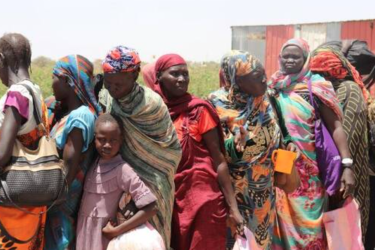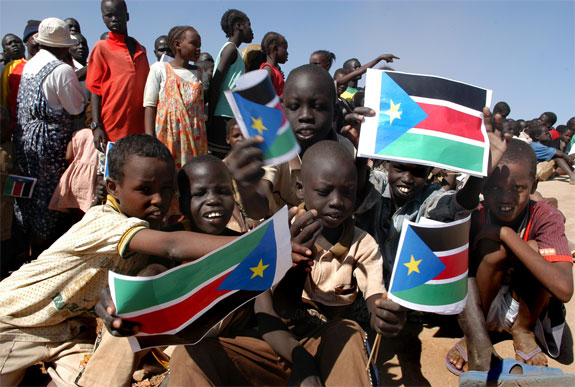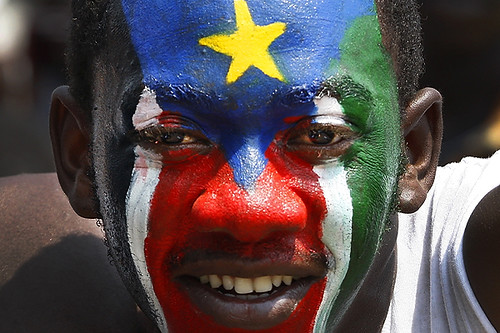South Sudan

The structural roots of Sudan’s ongoing devastation
Sudan: Regime digs its own grave in face of popular uprising

By Meera Zoll
June 24/July 1, 2012 -- Green Left Weekly -- Sudan’s National Congress Party (NCP) regime is facing rising dissent after a new round of youth protests began on June 16 against austerity measures, spreading throughout the week to cities and towns across Sudan.
Protesters and security forces have clashed daily as the government of President Omer Al Bashir struggles to prevent a widespread uprising.
Sudan’s economy has been in a downward spiral since South Sudan’s secession last July. Most of the two countries’ combined oil reserves are located in the south, so Khartoum lost about 75% of its oil income after the split. Inflation reached 30% in May and the cost of basic necessities has rocketed, devastating the already impoverished population.
In a June 12 meeting, the National Consensus Forces (NCF), which comprises the major opposition parties including the Sudanese Communist Party (SCP) and the National Umma Party, decided to initiate a mass campaign to topple the regime in response to the planned removal of fuel subsidies. It discussed an interim plan for a three-year transitional period after the regime’s projected downfall.
June 18, 2012 – Police fire tear gas at protesters.
Uganda: Why 'Kony 2012' will bring more misery to Africa

US Navy special forces.
South Sudan: Africa's newest communist party

By Kerryn Williams
December 16, 2011 -- Links International Journal of Socialist Renewal -- Africa’s newest communist party has been born with the formation of the South Sudan Communist Party. On June 28, the SSCP was formally launched at a press conference in Khartoum. On July 9, the Republic of South Sudan officially came into being after seceding from Sudan.
The new party was established by the former section of the Sudanese Communist Party in the south, and also involves returning southern SCP members who fled to the north of Sudan during the civil war.
The party includes former SCP members who joined and were active at all levels in the Sudanese People’s Liberation Movement (SPLM), now the ruling party of South Sudan.
Preparation for the new party began after the 2005 Comprehensive Peace Agreement (CPA) was signed, which ended the three-decade-long north-south civil war and paved the way for the January 2011 referendum on independence.
Long road to independence
The new South Sudan state faces enormous challenges after a long and difficult road to winning independence.
While the most recent phase of the war in the south, from 1983-2005, caused the death of some 2 million people, the conflict and the suffering of the people of South Sudan long predates this.
Sudan/South Sudan: Communist Party sees dangers, but also possibilities for progress

South Sudan's independence celebrations.
Challenges for independent South Sudan; Behind the clashes in Blue Nile, South Kordofan and Darfur

South Sudan celebrates independence.
Sudan: Why the people of the south voted for independence

By Kerryn Williams
Sudan: US backs election farce

By Kerryn Williams
April 15, 2010 -- Hailed as the first “competitive”, “open”, “multi-party” elections in Sudan in 24 years, there was little free, fair or open about the national poll that began on April 11, boycotted by the major opposition parties.
The holding of democratic elections was a key component of the 2005 Comprehensive Peace Agreement (CPA) that ended a two-decade civil war between the Sudanese government in Khartoum — ruled by the National Congress Party (NCP, formerly the National Islamic Front) since it took power in a 1989 military coup — and the South Sudan People’s Liberation Movement/Army (SPLM/A).
Sudanese communists discuss prospects for peace
By Kerryn Williams,